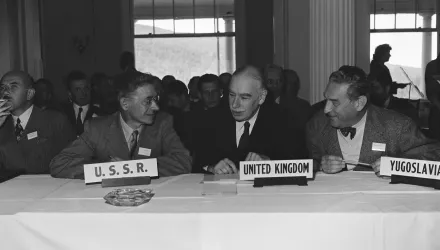International Security is America's leading peer-reviewed journal of security affairs.
Abstract
“Don’t Ask, Don’t Tell, Don’t Pursue”--the policy that allows homosexual men and women to serve in the U.S. military as long as they keep their sexual orientation private— has stirred controversy since it was implemented in the summer of 1993. As Elizabeth Kier of the University of California at Berkeley argues, both opponents and proponents of the integration of gays and lesbians into the armed forces agree that this policy is unsatisfactory, but for different reasons. Kier focuses on the opponents of open integration, who charge that permitting homosexuals to serve openly would harm military effectiveness by hindering the development of “primary unit cohesion,” which they contend is a key ingredient to performance. Kier challenges this assumption head-on and explains why permitting gays and lesbians to serve openly would actually enhance military performance.
Kier, Elizabeth. “Homosexuals in the U.S. Military: Open Integration and Combat Effectiveness.” Fall 1998
The full text of this publication is available in the link below.



